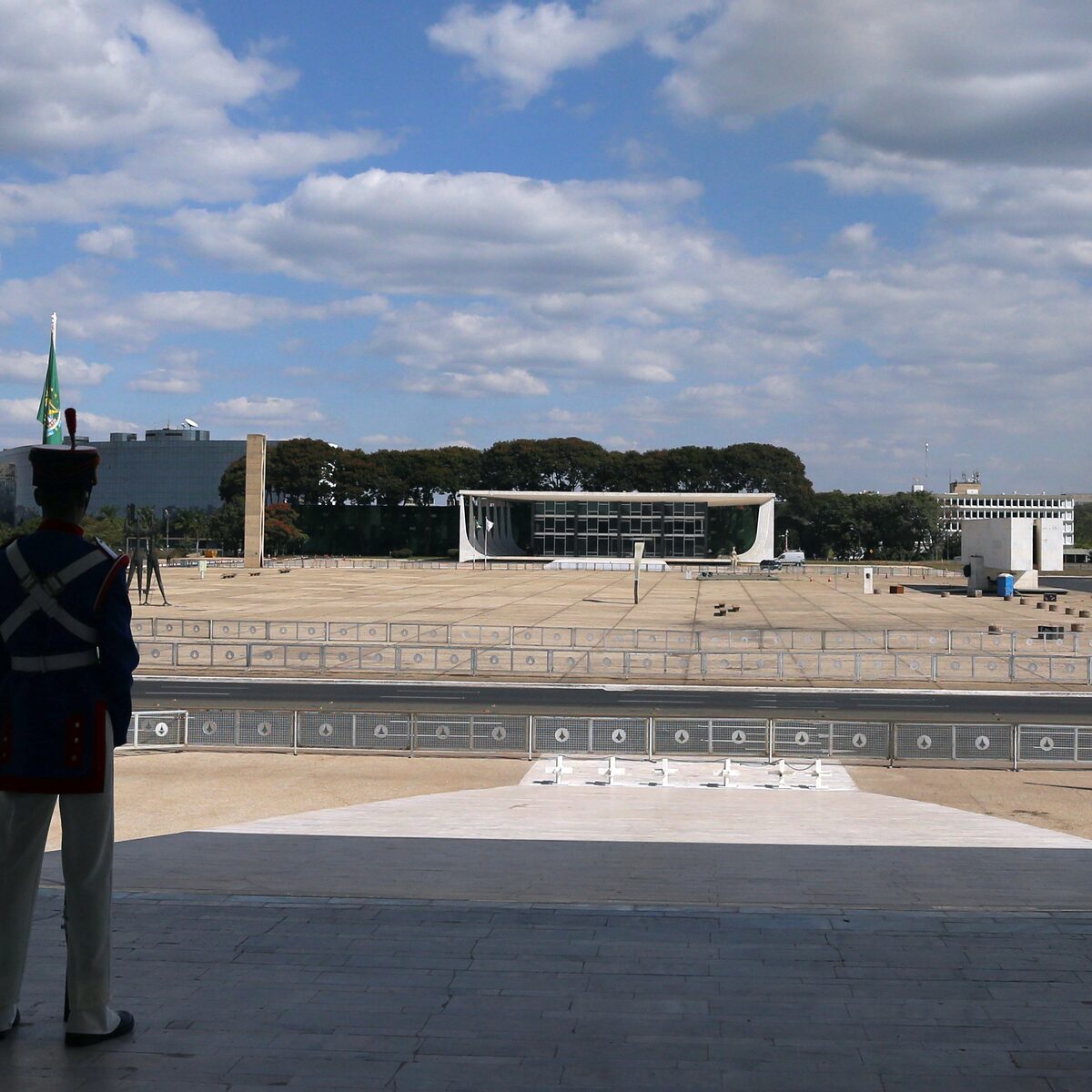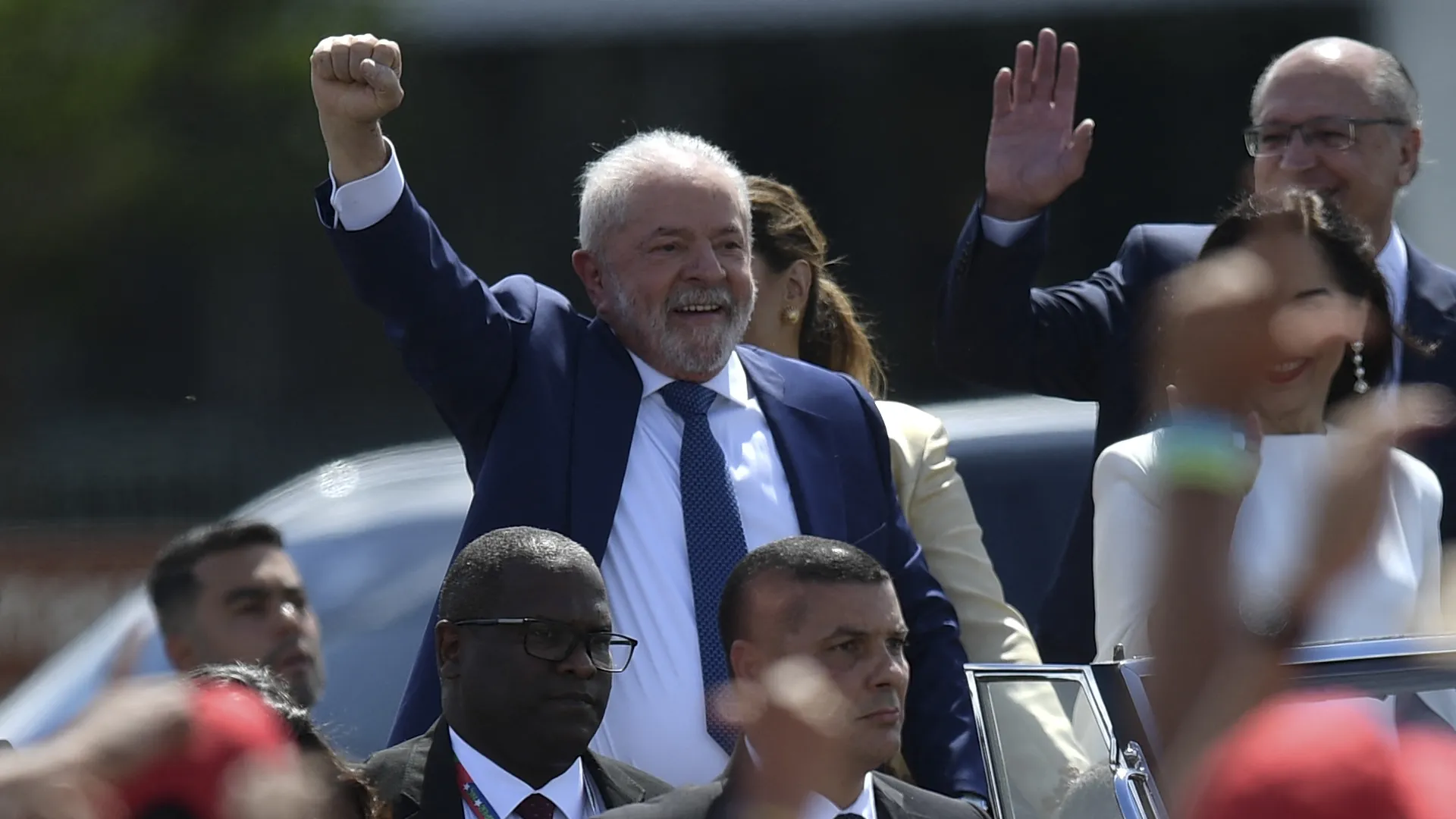Former President Donald Trump has ignited a firestorm of political rhetoric by publicly defending Brazil"s former President Jair Bolsonaro, labeling the ongoing prosecution against him a "WITCH HUNT." This alarming endorsement not only reflects Trump"s continued efforts to position himself as a martyr of political persecution but also underscores a troubling trend of autocratic sympathies that threaten the core tenets of democracy across the Americas.
Trump"s Unfounded Allegations
In a recent social media post, Trump declared Bolsonaro "not guilty of anything, except having fought for THE PEOPLE," a phrase that resonates with his own narrative of victimhood. This narrative conveniently ignores the serious allegations against Bolsonaro, who is on trial for purportedly attempting to stage a coup against current President Luiz Inácio Lula da Silva following his election victory in 2021. According to AP News, Bolsonaro"s actions are under intense scrutiny as federal investigators seek to hold him accountable for his role in undermining Brazil"s democratic processes.
Lula"s Stand for Sovereignty
In response to Trump"s comments, President Lula asserted that Brazil would not tolerate "interference" from external actors, emphasizing that "the defense of democracy in Brazil is a matter for Brazilians." This statement is not just a nationalistic sentiment; it reflects a critical understanding of sovereignty that is increasingly under threat from foreign influences, particularly from the United States. Lula"s commitment to maintaining Brazil"s judicial independence is a stark reminder of the importance of robust democratic institutions in resisting authoritarian tendencies, both domestically and internationally.

Brazil Supreme Court rules homophobia a crime | Reuters
The Implications of Authoritarian Endorsements
Trump"s defense of Bolsonaro carries significant implications for civil rights and democratic governance. By framing Bolsonaro"s legal troubles as a political attack, Trump not only legitimizes the former president"s actions but also emboldens other leaders who might seek to undermine democratic norms. This cozy alliance between Trump and Bolsonaro highlights a worrying trend where political leaders prioritize personal loyalty over the rule of law. According to BBC News, Bolsonaro has been accused of leading an attempted coup, and his legal challenges are a crucial test of Brazil"s political resilience.
The Role of the United States in Global Politics
Trump"s remarks arrive at a time when Brazil is asserting its independence on the global stage, particularly as Lula engages with leaders from China, Russia, and other nations during a recent BRICS summit. This engagement is a clear signal that Brazil is seeking to diversify its international partnerships and move away from the historical subservience to U.S. interests. Brazilian Minister of Institutional Affairs Gleisi Hoffmann remarked that the "time when Brazil was subservient to the US was the time of Bolsonaro," indicating a shift towards a more assertive foreign policy that prioritizes Brazil"s sovereignty. The U.S., under Trump’s influence, risks alienating a critical ally in South America if it continues to meddle in Brazilian affairs.

Lula sworn in as Brazil"s president in ceremony Bolsonaro skipped
The Broader Political Context
Trump"s comments also come at a time when his own political future remains uncertain, as he faces various legal challenges that echo the very tactics he now employs to support Bolsonaro. By equating Bolsonaro"s situation with his own, Trump aims to rally his base around a shared narrative of persecution. This tactic is not new; it"s a well-worn strategy that has been effective in mobilizing support from those who feel disenfranchised by the political establishment. As reported by Townhall, the implications of such rhetoric extend beyond Brazil, instigating a global conversation on the fragility of democratic norms in the face of rising authoritarianism.



![[Video] Gunfire between Iraqi security forces and Sadr militias in Baghdad](/_next/image?url=%2Fapi%2Fimage%2Fthumbnails%2Fthumbnail-1768343508874-4redb-thumbnail.jpg&w=3840&q=75)
